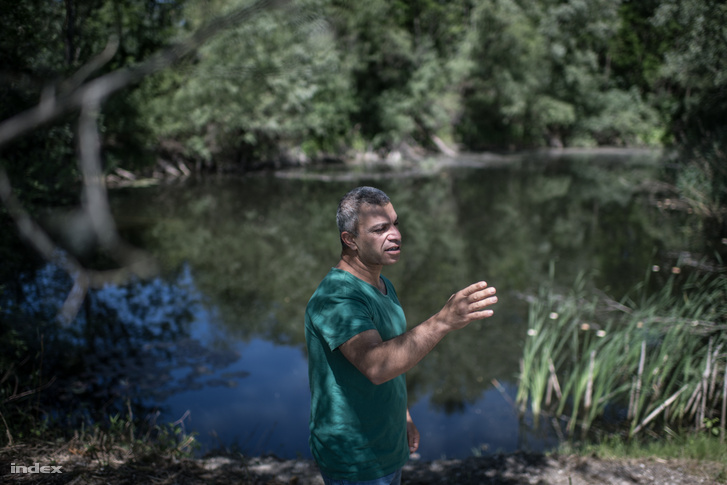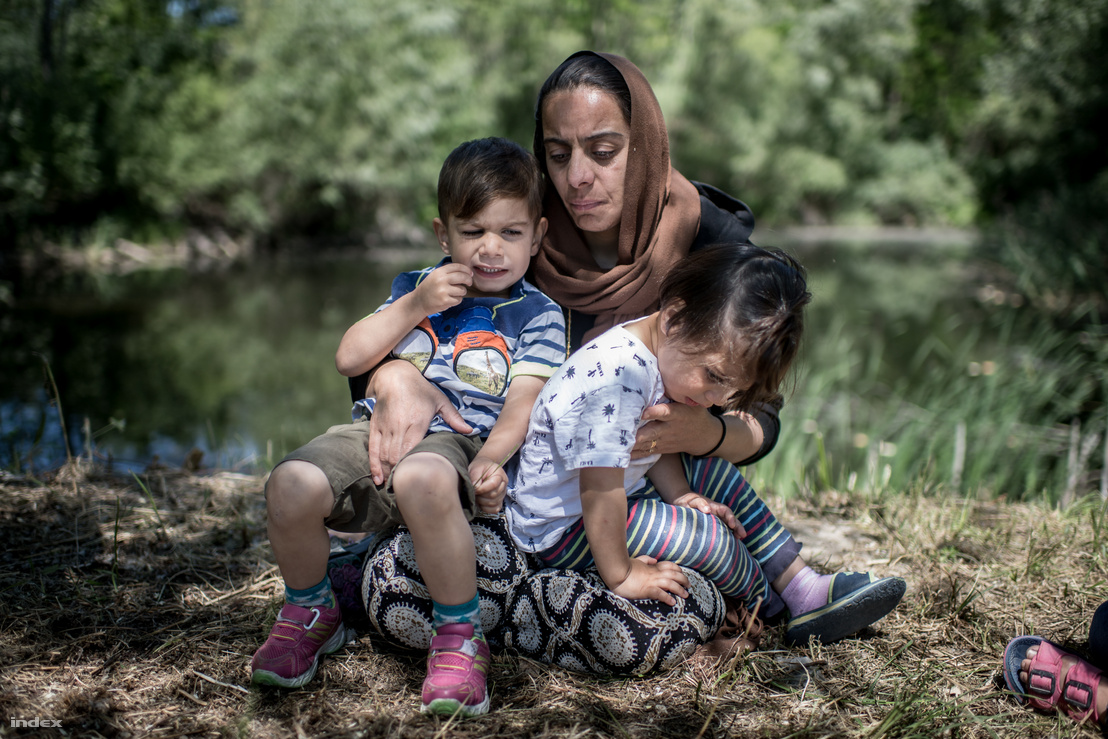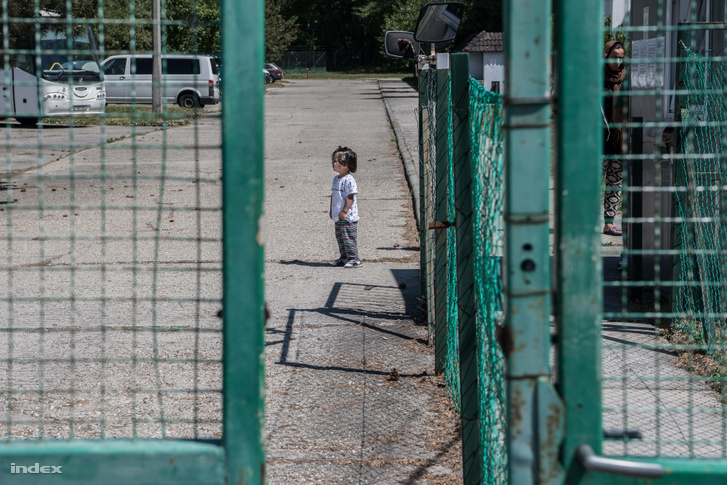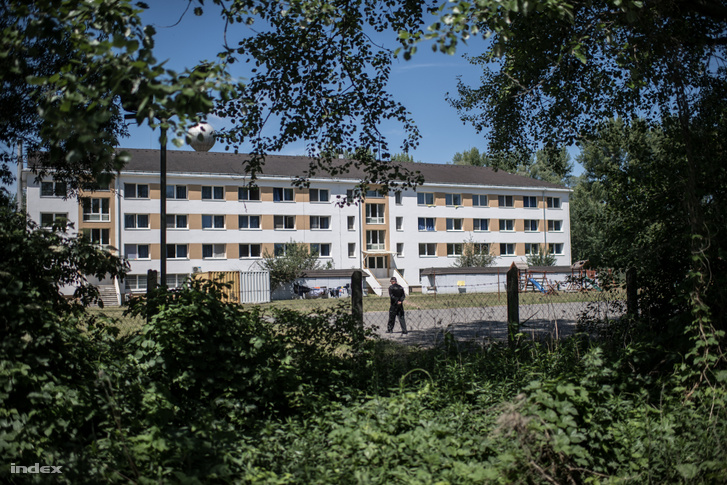What makes me mad is that my children had to grow up in prison

"The children are frightened because they have never met this many people. The younger one even cried when she saw a car she had to get into. She had never been in a car before."
These words may conjure up an image of a father who was just rescued from some jungle far from civilisation after years of being lost. But this was said by a father who was just released from one of the transit zones on the southern border of Hungary.
Last week, the European Court of Justice ruled that holding asylum seekers captive in the Hungarian transit zones constitutes unlawful detainment, as they were not allowed to leave the zone towards Hungary, but they also faced penalties if they left towards Serbia, possibly losing the chance of acquiring refugee status in Hungary. Subsequently, the Hungarian government decided to shut down the transit zones altogether.
We met Karzan, his wife, and their four children on the first day after their release from the transit zones, in the Vámosszabadi open refugee centre where they took their first free steps on Hungarian soil after two years of waiting right in front our eyes. Before that, as the family approached the iron gate, a guard stopped them in their tracks yelling, "Plastic, plastic" and waved them back.
The family turned back obediently.
I shouted after them in English that "plastic" means they have to show their documents, and soon after, the man returned with the six IDs of the family, but the guard once again waved them back, repeating "plastic" relentlessly. I asked the guard why he sent them back and it turned out that they needed their entry pass to the camp, and not their IDs to leave - if I wasn't there to translate, the family might still be stuck behind the fence, believing that there had been a misunderstanding and this camp is just as much a prison as the one before.
White hell
"How was life in the transit zone?" I asked once they finally passed through the gate. The camps were closed to outsiders, so much that the only time journalists could set foot behind the barbed wire fences since the 2015 establishment of the camps was a guided tour where reporters were quickly herded through the empty compound. But it was not only the press who were refused a glimpse on how Hungary detained people who merely asked for protection.

Humanitarian and refugee-related NGOs were not allowed to enter the area either, and the outside world only knew from sporadic messages and rulings of the Strasbourg Court that the authorities starved refugees on several occasions, treated pregnant women inhumanely, and detained families for no reason whatsoever. Last week, this story finally came to an end when the ECJ ruled detainment beyond 28 days unlawful.
Karzan ruffled his hair as he recalled the enclosed world of the transit zone. "Everything was white. The container where we lived was white. The yard where we walked was covered in white gravel. All we saw were barbed wire and white walls.
I thought we would go crazy.
There were many children in the camp who were noisy by day and crying at night. There was no time to rest. Every day, for two hours, we could go over to the people living in the neighbouring sector. It is good to talk to others, but if you carry on a conversation for two years, then there comes a point after which you no longer have much to say. You discussed everything. Throughout most of the day, the only people we saw were the policemen who were not allowed to talk to us. They were everywhere, but if I tried to talk to them, or just say hello, they never reacted. There was an older policeman, he always nodded when he saw me, I think he would have said hi if it was not forbidden."
We were sitting around in the bushy area behind the camp. Kazan's headscarf-wearing wife held their smallest child on her arm quietly, and averted her eyes from us, gazing off into the distance. But the man was on his feet, restless, showering me with words.
"Once a week, a psychologist visited the camp. On one occasion, I flipped out about what kind of life this is, that I cannot handle it anymore. We were kept in the dark about our case. By that time, it had been a year and a half since we lodged our asylum request, but nobody said a word on why there is no decision, why we are still held captive. I was shouting, but then the psychologist said that if I lose my temper like that, we would have to end our conversation. Of course, I was upset. I never went back for another session."

Children without help
"The children had an even tougher time dealing with this. They had nothing to do. They had a school for children above seven, but our kids are six, five, three, and two years old. Nobody cared about the little ones; they had nowhere to play, there was no kindergarten, there were no toys for them. Most children passed their time by playing with their parents' phones. We were lucky because our children enjoy playing together."
"It was difficult when they asked me, 'Daddy, why are we locked up?' I could not let my desperation show because that would have crippled them. I reassured them that we would still have to wait a little bit, but then our case would be sorted out, and we could leave. My heart was heavy, but I knew that we did not do anything wrong, it was not my fault that we were there."
Karzan and his family embarked on their journey to Europe back in 2016 from near the Turkish border in Iraq, next to Kurdistan. "Soldiers of the PKK (Kurdistan Workers' Party) regularly crossed the border and hid in people's houses. If you did not help them, they shot you. If you did, then you got attacked by the Turkish forces and their allies." On why they decided to flee Iraq, he says:
"I am 37 years old, and throughout my life, I only saw war. That is why I left. I did not want my children to live like that."

The family left home with two children, their two youngest were already born on the road. "They were introduced to the world in the transit zone," Karzan said contemplatively, recounting his experience quoted at the top of this article. For these two children, the fact that there are people living beyond the fences, and that there are machines like cars were shocking realisations. "This is the first time they see a lake as well," he added, pointing to the small body of water glistening behind us.
Baffled by the hatred
"I read a lot of articles on my phone while we were in the zone. I know that Viktor Orbán hates Muslims and refugees. The only thing I don't understand is how you can think that way. There are good and bad Muslims, good and bad refugees, just like there are good and bad Christians and good and bad Hungarians. I don't get it."
We started making our way back towards the open camp. The wife was walking ahead, and I told Karzan that I wanted to talk to her as well since she hadn't said a word. "Don't ask her about these things. She would only cry, not say anything, just cry, and she wouldn't be able to stop."

At the gates, I awkwardly asked what their plans are once their case is closed and they get to leave the camp. "We wish to settle down in Hungary. There are good people here who helped us with our application, or the ones who got the transit zones shut down and us released. I don't want to go into politics, I am not mad at anybody. I want a normal life, I want to see my family happy.
The only thing that makes me mad is that my children had to grow up in prison."
Why was this family stranded in the transit zone for two years?
"The family's case was not complicated, it was the immigration authority that made mistakes during the procedure," a lawyer from the Hungarian Helsinki Committee explained to Index. Tímea Kovács told us that the National Directorate-General for Aliens Policing issued four decisions, but all were overturned by the court for various reasons.
"It was misfortunate that the family's procedure begun before the Torubarov-ruling. Before that, courts only had the power to send decisions back to the authorities for reconsideration and did not have the power to grant the applicants protection." The case of the Iraqi family is still ongoing, and even if they do not acquire refugee status (which Hungarian authorities rarely approve), they could still be entitled to subsidiary protection, the lawyer informed.
(Cover: János Bődey / Index)

Support the independent media!
The English section of Index is financed from donations.


